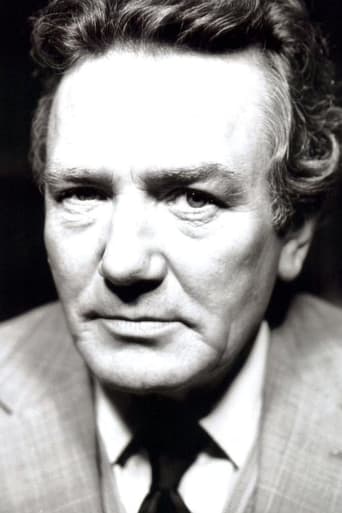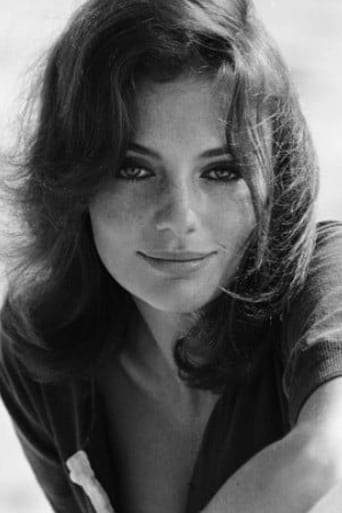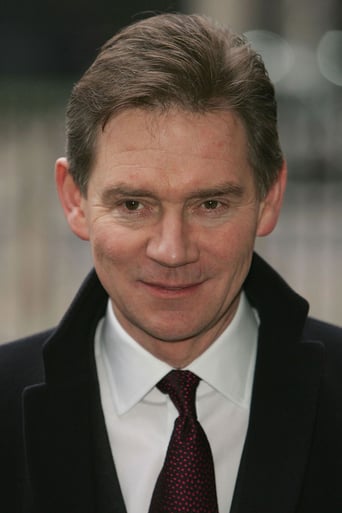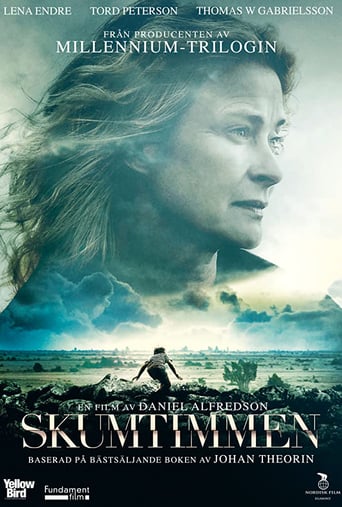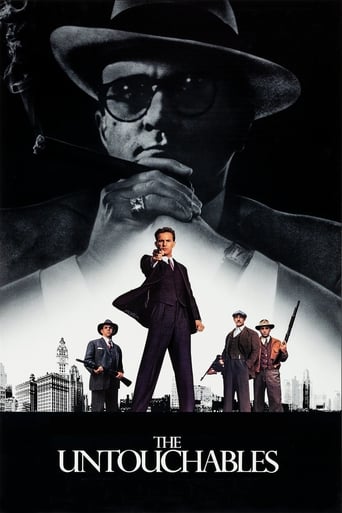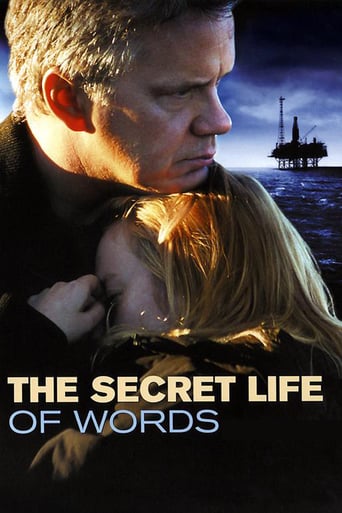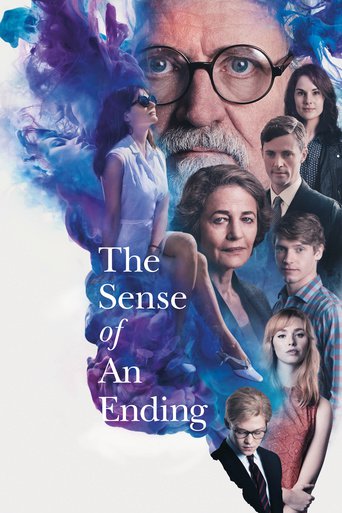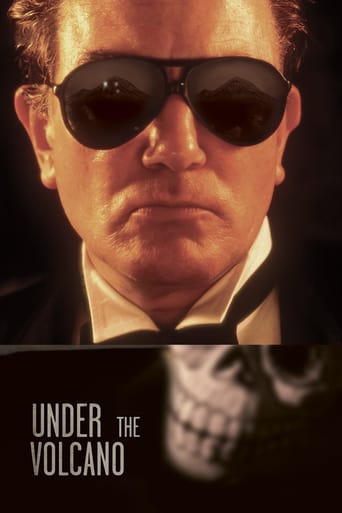
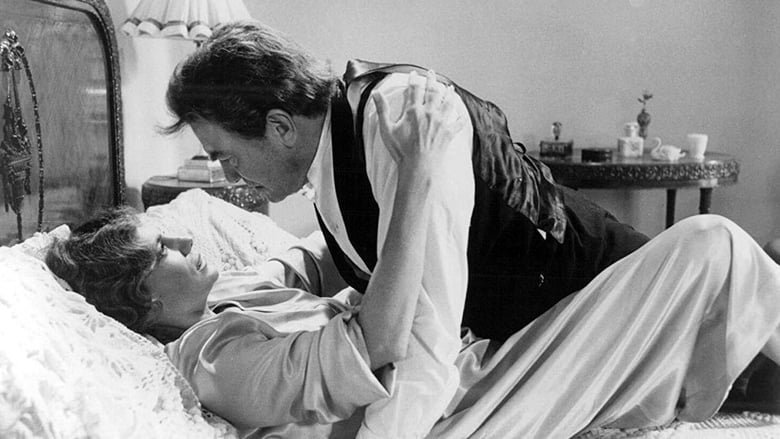
Under the Volcano (1984)
Against a background of war breaking out in Europe and the Mexican fiesta Day of Death, we are taken through one day in the life of Geoffrey Firmin, a British consul living in alcoholic disrepair and obscurity in a small southern Mexican town in 1939. The consul's self-destructive behaviour, perhaps a metaphor for a menaced civilization, is a source of perplexity and sadness to his nomadic, idealistic half-brother, Hugh, and his ex-wife, Yvonne, who has returned with hopes of healing Geoffrey and their broken marriage.
Watch Trailer
Cast


Similar titles
Reviews
Firstly, I have never read the cult novel which is the basis of the film. I am reviewing the film as just that - a film - and what a film this is! A class act - and an acting class all-in-one. Albert Finney is pitch-perfect in every instance: voice and body language are used to create an absolutely authentic characterization of the Consul. (When Mr. Finney was not awarded the Oscar for his performance it was the equivalent of "Citizen Kane" not having won for Best Picture!) Apart from the acting (all of which is terrific) and the muscular, tight Guy Gallo script and the inner-demonic Alex North score and the crystal-perfect cinematography and the palpable atmosphere of each and every setting and the consummate direction by the legendary John Huston, the film is about Life and Death in the deepest meanings of those ultimately indefinable words.Jacqueline Bisset (Yvonne Firmin) was never more lovely. Sadly, her past brief adulterous fling with Geoffrey's half brother, created a lasting rift between her and Geoffrey, in spite of their enduring love and respect for each other. What a story: humanity struggling to live at the brink of its limits. I suppose it's been told a lot of times, but it's hard to imagine that it's ever been told better than this. This film really delves into Lowry's psyche, and you see the horror of being a man. It's a difficult and painful film, but the filmmakers never turn it into a cheap, sensationalistic film. It's narrated by Richard Burton, who had one of the greatest voices an actor ever possessed. Burton's narration lends a dignity to this film, and to Lowry's life. Albert Finney gives one of the most devastating portrayals of an intellectual mind pickled in alcohol ever captured on-screen. And, the legendary director, John Huston, shoves our faces in it.Overall rating: 8 out of 10.
Geoffrey Firmin, alcoholic ex-British consul to Mexico, is drunk on the day of the dead in Cuevernica Mexico. His wife has left him, his brother is in Mexico City, and he is lonely. He attends a party, where he gives a drunk nonsensical speech, before going to a bar to drink. It is then that his ex-wife arrives, she misses him, and he misses her.He invites her back into their home, where they talk, and Geoffrey drinks. His wife, Yvonne, goes to take a bath, and Geoffrey goes off in search of liquor. His brother Hugh arrives and sees Yvonne, he is surprised to see her. Geoffrey comes back, and asks his wife and brother to come with him to see the sights. Geoffrey constantly interrupts their trip with drinking. Eventually, Geoffrey goes on an alcoholic rampage, and Hugh and Yvonne look for him, as night falls on the day of the dead....The entirety of the film rests on one thing, the performance by Albert Finney. Since Huston's shooting method is to utilize no tricky camera positions, or flashbacks, Finney's performance has to knock it out of the park in order to sell this story. And it does. In the history of film, the character of the drunk has always been an interesting one. Overplay it, and it can seem comedic, underplay it and it can seem non-existent. To strike the perfect balance is hard, and with little nifty camera tricks out of the question, the film rests on the actors performance.It is generally accepted that the three great dramatic drunk male performances were portrayed by Ray Milland in The Lost Weekend, Nicolas Cage in Leaving Las Vegas, and Jack Lemmon in Days Of Wine and Roses. No offense to any to the above, but Finney blows it out of the water. His Geoffrey Firmin is a force of nature. He is so incredibly into character, that halfway through the film I was not thinking in terms of Albert Finney, but in terms of Geoffrey Firmin.He delves into the depths of a character that really isn't that likable, and he doesn't try to make him likable. He plays it like a real drunkard. When he meets a British man after lying on the road, he gets up and begins to mock the man. The man doesn't know of course, but we do. Finney's drunkenness is done to the tee. When Firmin runs out of alcohol he plows through his typical hiding spots in a rage, until moving into the backyard, where he find his bottle. It's a bravura performance.However, Finney is not the only actor who gives a great performance. Jacqueline Bisset, playing Firmin's long suffering wife, gives a wonderful performance. She still loves him, after all of those years, and she thinks she can help him, not knowing he is beyond help. Bisset was quite good in Day For Night, but here she gives a better performance. It's great. The same, however, cannot be said for Anthony Andrews as Hugh Firmin.To be fair, Andrews isn't given the same opportunities as Finney and Bisset, but his character is kind of bland, so it is hard to create a great character out of this. As Huston lived in Mexico, he certainly knew his surroundings, and the cinematographer strikes a great balance between Firmin's surroundings and his drunkenness.I do not like the score, although many people do. I find it sounds almost comedic at points, certainly the wrong kind of atmosphere for this kind of film. The screenplay does a great job of condensing an "unfilmable" novel into a film. Huston's direction is laid back, he lets the story take its course, and lets the actors do their thing. I know why Huston would choose to film in such an uninspiring way, but I do wish he could have made his camera just a little more involved.You can tell he is in control of his film, but it could have been shot in a more involving way. This brings me to my main issue with the film. It is just kind of boring. It moves along at a slow pace, and with characters that are unlikable. This makes it very hard to get into the film. No offense to Huston (or books), the film seems so literary. It never really becomes a film, it feels like an adaptation, all the way down the line.To be fair, that is Huston's style, but I can usually overlook it, most time I don't even realize it, if the plot is interesting. Here the film feels like a showcase for Finney's amazing performance, with the plot being pushed to the side, much as the novel must have been, with Lowry's thoughts instead of Finney's performance. Overall, this is not a bad film. The performances by the two leads are terrific, and it is a fitting third last film for Huston.Under the Volcano, 1984, Starring: Albert Finney, Jacqueline Bisset and Anthony Andrews, Directed by John Huston, 7/10 (B)(This is part of an ongoing project to watch and review every John Huston movie. You can read this and other reviews at http://everyjohnhustonmovie.blogspot.ca/)
"The novel explores the Consul's past and present, relates his private doom to the tragic fatalism of the Mexican scene " ~ Stephen Spender Under the Volcano was a novel written by critically acclaimed Malcolm Lowry. The book eventually became a film starring Albert Finney and Jacqueline Bisset, directed by critically acclaimed John Huston. Both the film and the book failed to reach a wider public despite the brash, braying praise of critics.Like Lowry, I lived in Mexico for a time, from fall 1980 till late 1981. During that time we traveled to a number of places including two trips to Cuernavaca. I loved Cuernavaca, the city where this story primarily occurs, the Land of Eternal Springtime where Cortez established his winter palace. Like Lowry and the tragic hero of his novel I, too, was present in Tepotzlan on a holy day when the dark-faced peasants in loose white clothes and wide hats brought out Christ and the Virgin from the shadows of monasteries, parading, holding high large displays and brightly colored pillars, burned incense, celebrating intently the blended religion of the peoples.This story covers 24 hours in the life of an alcoholic, his last 24 hours, with his singular preoccupation on where he will get his next drink, simultaneously immersing the reader into his internal despondency, hopeless self-wreckage, introspection and hallucination. It is a tragic life culminating in a tragic end, perhaps intended to be the mirror of a forlorn culture shrouded in apparitions of death.I originally took an interest in the book because I'd read that it was supposedly structured like the Cabala, the chapters being a series of steps toward enlightenment. My first effort to read it in the late 80's left me flat, however, and I placed it back on the shelf for a couple years. I was not convinced that the effort would yield a sufficient reward. The second attempt ended about a fourth of the way through with the same frustration. A couple more years past, and upon beginning the story I was transported inward to the heart of the characters, the culture, and the bleak futility of the hero's quest.John Huston took this very complicated bundle of soiled images and attempted to iron it out into its essential story. The film, inadequate to the task, did capture the book's essence. There is no way it could capture the spinning surrealistic writing, compelling inner monologues, and painfulness of Lowry's heartfelt bloodletting.Malcolm Lowry wrote the first draft in Mexico while living in Cuernavaca in 1938. Director Huston does an outstanding job of giving the feel of Mexico during this time frame. And the film brings to life many vivid memories of our time there Despite its shortcomings, I found myself still moved by the film. This is the second time I've watched it and this time I enjoyed the performances of Finney and Bisset, whom a few here have been especially critical of. Finney is nearly perfect throughout in his portrayal of a wrecked man. Bisset is equal to the task she must perform, confused, frightened, compassionate, pained.There are two scenes especially perfect. The one of Finney as Geoffrey Firmin searching desperately for a bottle, a search that leads him into the garden where he immerses himself in the object of his quest. This scene is a summing up of the man's lost life. And the last scene revealing that his own self-destruction hurts more than himself... hurts all who are around him.The weakness of the film for me was perhaps the feeling that it was put together by a nostalgic older director who could have done more with the music, the camera work, the edits. Great films often grab you from the opening images, credits and soundtrack. Despite what a few have written here, I found myself having to overlook what I considered a weak appetizer that insufficiently lured me into the depths of our hero's heart, mind, soul, struggle.Huston could have done more with the film, but did not. Perhaps it is because of the era. He did not feel it necessary? I can't say. The grandeur of his foreign setting is hollow. I cannot blame the actors for this. Finney was remarkable throughout, almost over the top. Bisset's broken heart shone through with clarity.It's a good film based on a rich, but difficult, book. If it is too depressing or too convoluted and enigmatic, you're under no obligation to finish either.If you find yourself stimulated by old Mexico, the companion documentary based on this film is wholly worthwhile. Watch the film first, though."Time is a fake healer anyhow. How can anyone presume to tell me about you? You cannot know the sadness of my life . Alas, what has happened to the love and understanding we once had?" ~ Geoffrey Firmin, Under the Volcano
I have just received and watched the newly released PAL version of the DVD. The DVD comes with no context, just the movie and the option to select a chapter, no subtitles, no documentation, which is a bit disappointing. However, watching the movie again was a wonderful experience. I had seen Under the Volcano in the mid eighties without having read the book. I was impressed and it has been one of these films that somehow always stayed with me. I was particularly impressed by Finney's performance, who superbly plays an alcoholic and disillusioned British ex-consul.I agree with some points made by posters here that if you have read and appreciate the novel, the film can be a disappointment from a literary point of view. Adapting a literary master piece is quite a challenge, and there are only very few films that can actually match the original book. But the acting is so well that the movie can be appreciated entirely on itself, without knowing the book.


